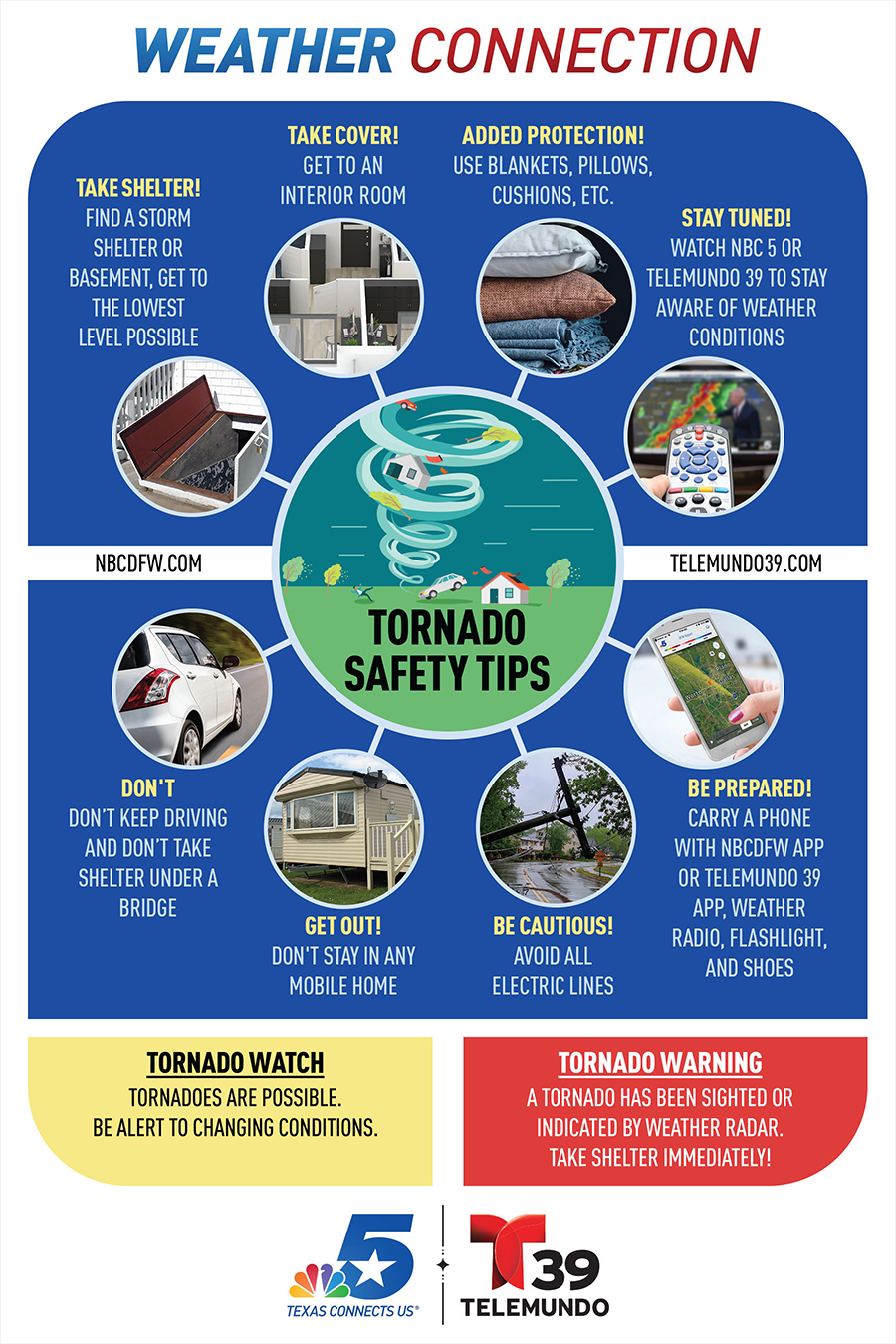On Thursday at about 11:30 a.m., Fort Worth Police officers were called to a weather-related crash on West Freeway.
“What we had was a vehicle in the far right lane, lane number three. They actually went over some water that was ponding on the freeway," said Buddy Calzada, Fort Worth Police Department public information officer.
Calzada said when the driver came across the puddle, her car hydroplaned.
"[The driver] hit the median on the right, and then went across all lanes of traffic and struck the bridge right there on the far left," he said.
Get DFW local news, weather forecasts and entertainment stories to your inbox. Sign up for NBC DFW newsletters.
She was safely reunited with her loved one, Calzada said, thanks to her seatbelt.
"So, you look at a tragic accident, and someone walk away with no injuries, that’s very, very lucky for them," he said.
He said it's also a reminder to keep an extra distance between the car in front of you. In normal driving conditions, you want three seconds.
Local
The latest news from around North Texas.
“Low visibility? Add an extra second. Heavy traffic? Add an extra second," he said.
About 21 crews are dispatched across the city to help prevent another rainfall risk: Flooding.
“We do pre-inspections. We go out and check all critical inlets, culverts, low water crossings that may overtop, to make sure they’re free and clear of obstruction before the rain comes," said Juan Cadena with Fort Worth's stormwater operations.
He said there are over 350 hotspots that they check before and after every rainfall.
“Our goal is to make sure that the runoff goes down the culvert, goes down the drain and doesn’t overtop the roads and doesn’t create flooding issues," he said.
Calzada said they go back and check all sites after rainfall to make sure it's clear.
He said the best way to report something is through the My Fort Worth App.
“Whether it’s flooding, overtopped road, inlet clogged or culverts clogged, usually our crews will get that report from the My Fort Worth app within minutes," he said.
At 50 of the city's flooding hotspots, the city has installed flood warning sensors. The equipment detects accumulated rainwater on the roadway and flashes lights to drivers, signaling them to turn around.
You can check the status of the sensors on this real-time map.
Calzada said his teams get an alert, too.
“If the road is overtopped, with one inch, two inches, three inches of water, if the road is overtopped at any point… it’s going to trigger our warning system: The lights go on, and we get alerted," he said.
His crews get dispatched to the road crossing, and they don't take any risk in the rain.
“I would say there is no safe depth that you can cross. If the road is overtopped, we’re immediately closing that road," he said.
CONTINUING WEATHER COVERAGE
Stay up to date with the latest weather forecast from NBC 5's team of Weather Experts by clicking here or by watching the video below.




